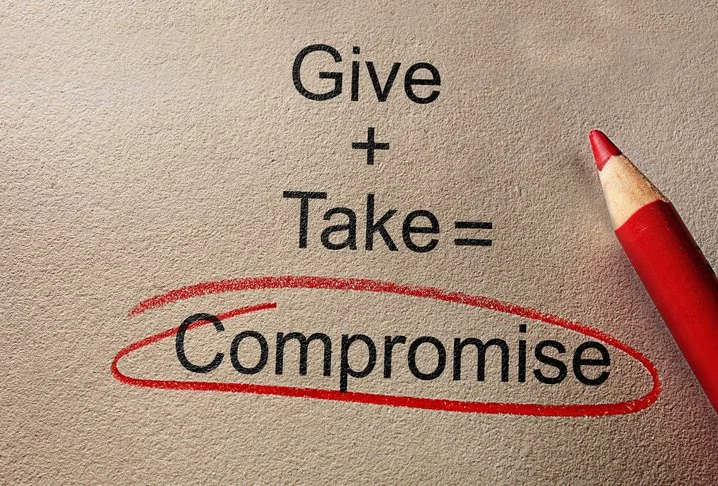ADVENTURES IN CONDOMINIUM OWNERSHIP
Earlier this year, I purchased a condominium unit in Lincoln, NH and it’s been quite interesting being on the ownership side of the condominium world. Being a unit owner has given me a new perspective that will benefit my practice and our clients. If you’ve never been to Lincoln, it’s a truly special place and I highly recommend it. Great scenery, rivers, lakes, mountains and all manner of outdoor activities all year round.
The adventures start at a recent stay in Lincoln. I could hear an odd dripping sound as I was scrolling through Twitter (I refuse to call it “X”) and other internet nonsense. What the heck is that, I thought to myself?
I went to the bathroom to find a small but persistent leak coming from the bathroom fan. Like Liam Neeson in the movie Taken, I said to myself that I have a “special set of skills” to deal with exactly this type of situation. I immediately went upstairs to alert my upstairs neighbor, and he informed me that someone had just used the shower, so we were able to easily determine where the leak was coming from.
What happened next was heartening for someone who sends demand letters on a day-to-day basis asking people to do the things they are already legally required to do. First of all, my neighbor invited me into his unit with a handshake and a smile. That was a good start. Then he told me that no one would use the shower until the problem was figured out. What a great guy! Thereafter, a plumber made a minor repair to a seal in the shower and the problem was solved.
What DIDN’T happen is also informative.
I didn’t immediately call management and blame them or the Board.
I didn’t threaten to withhold payment of condominium fees until someone figured out the problem.
My neighbor didn’t tell me to pound sand and not bother him.
No demand letters had to be sent to anyone about anything!
What did we do right?
My neighbor could not have been more responsive and helpful. He was willing to stop using the shower and hired someone to investigate the problem.
I notified my neighbor, and we figured out what was going on together.
We stayed in communication with each other.
I recently dealt with the same issue but as counsel to a condominium board. In that case, the owner with a leak in the unit denied the existence of a leak despite years’ worth of off and on complaints by the downstairs neighbor.
I recently dealt with the same issue but as counsel to a condominium board. In that case, the owner with a leak in the unit denied the existence of a leak despite years’ worth of off and on complaints by the downstairs neighbor. I sent a pointed demand letter to the owner with the alleged leak and explained both her obligation to maintain her unit and to permit access when an issue is suspected within. Finally, she relented on providing access.
The condominium’s plumber had a look around and to the surprise of absolutely no one, several leaks were found in components within the unit (faucets and shower parts). Since the repairs were to parts of the unit which the owner had maintenance responsibility for, the invoice for plumbing services was assessed to the unit. Incredibly, in spite of all the evidence, the owner denied an obligation to pay the plumber’s bill claiming that the repairs were not necessary. This was an astounding comment since the repairs have resulted in no further leaks to the unit below. The neighbor in this case, unlike my neighbor, made things senselessly difficult for all involved and created a large issue out of what should have been a relatively minor one.
Another interesting issue came up when my HOA wanted to charge me, and other owners, an extra annual fee as we intend to use our respective units for rentals (not just owner-occupancy). I explained to a Board member that absent an amendment to the HOA docs approved by the ownership, the HOA couldn’t charge an additional fee pertaining to use of the units.
The board disagreed with my analysis, so I was left with a choice: pay the fee and move on with my life or send a demand letter and create a ton of friction between myself and the Board.
At the end of the day, the $200 annual fee was not going to ruin my life and it hardly seemed worth going to war over. But more importantly, there is a good faith legal basis for assessing the fee. More specifically, the fee—which was meant to compensate the HOA for additional wear and tear on common amenities by renters—can be seen as within the Board’s powers with respect to on-going maintenance and repair of common area. Since there was a legal basis, and a reasonable one at that, the best solution was to pay and move on.
Wearing my owner hat, I can see the tremendous benefit of a good relationship with one’s neighbors and the Board. Whether they want to be or not, all the owners are essentially in business together, so cooperation and understanding are both of paramount importance.
Please feel free to reach out to Dean Lennon or email any of our MEEB attorneys at law@meeb.com to discuss concerns or request additional information.






